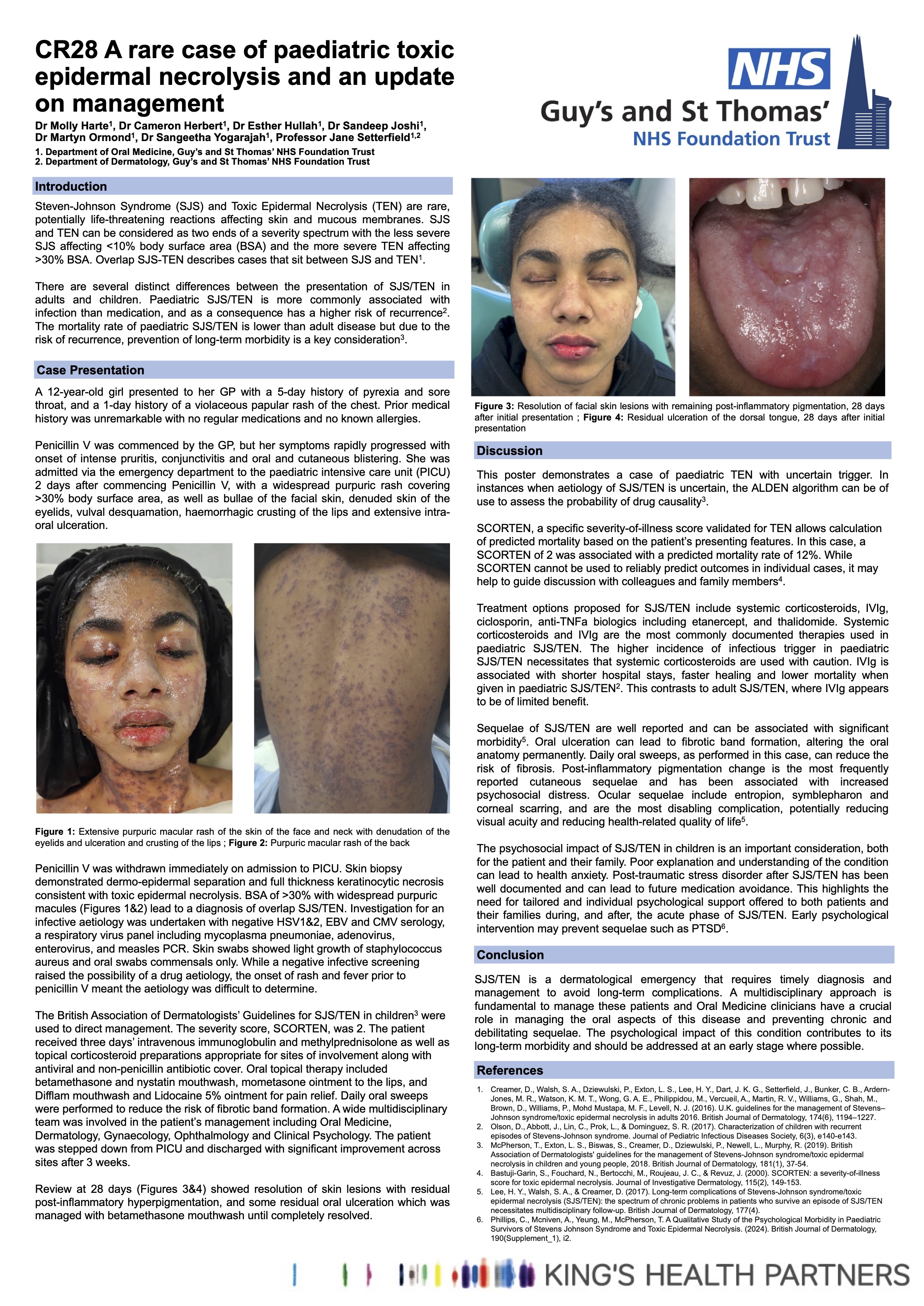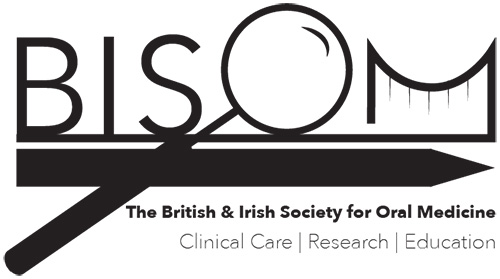A rare case of paediatric toxic epidermal necrolysis and an update on management
CR28
Molly Harte
Dr Molly Harte, Dr Cameron Herbert, Dr Esther Hullah, Dr Sandeep Joshi, Dr Martyn Ormond, Dr Sangeetha Yogarajah, Professor Jane Setterfield
Steven-Johnson Syndrome/Toxic Epidermal Necrolysis (SJS/TEN) is a rare, potentially life-threatening reaction affecting skin and mucous membranes. In contrast to adult cases, paediatric SJS/TEN is more commonly associated with infection than medication1.
A 12-year-old girl initially presented to her GP with a 5-day history of pyrexia and sore throat and a 1-day history of a violaceous papular rash of the chest. Penicillin V was commenced for presumed scarlet fever but her symptoms rapidly progressed. She was admitted via the emergency department to the paediatric intensive care unit (PICU) with a widespread papular rash covering >30% body surface area, as well as bullae of the facial skin, denuded skin of the eyelids, vulval desquamation, haemorrhagic crusting of the lips and extensive intra-oral ulceration.
Toxic epidermal necrolysis was diagnosed based on skin biopsy and extent of skin surface involvement. The British Association of Dermatologists’ Guidelines for SJS/TEN in children2 were used to direct management. Penicillin V was immediately withdrawn and extensive investigation for an infective trigger was performed, with negative results for herpes simplex virus and mycoplasma pneumoniae. The patient received three days’ intravenous immunoglobulin and methylprednisolone as well as topical corticosteroid preparations appropriate for sites of involvement along with antiviral and non-penicillin antibiotic cover. A wide multidisciplinary team was involved in the patient’s management including Oral Medicine, Dermatology, Gynaecology, Ophthalmology and Clinical Psychology.
The patient was stepped down from PICU and discharged with significant improvement across sites after 3 weeks.
SJS/TEN is a dermatological emergency that requires timely diagnosis and management to avoid long-term complications. A multidisciplinary approach is fundamental to manage these patients. Despite its rarity, Oral Medicine clinicians should be aware of the management of both adult and paediatric patients presenting with SJS/TEN and this presentation hopes to inform clinicians of the latest evidence-based management for this condition.

